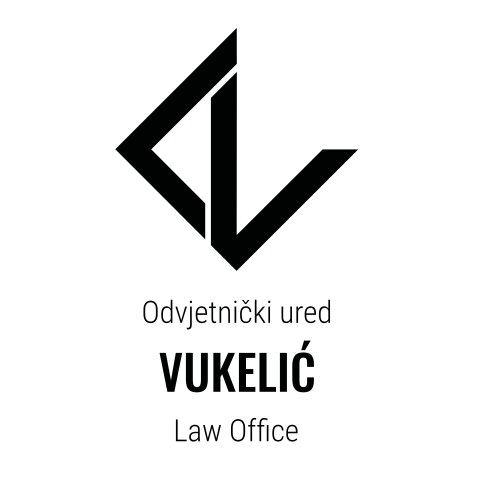Best Wage & Hour Lawyers in Croatia
Share your needs with us, get contacted by law firms.
Free. Takes 2 min.
Or refine your search by selecting a city:
List of the best lawyers in Croatia
About Wage & Hour Law in Croatia
Wage & Hour law in Croatia is governed primarily by the Employment Act, along with various EU regulations that have been adopted into local legislation. These laws regulate the relationship between employers and employees, ensuring fair working conditions, minimum wage compliance, overtime pay, and other rights related to work hours and compensation. The overarching aim is to protect employees while maintaining a balanced environment for employers to operate.
Why You May Need a Lawyer
Engaging a lawyer specialized in Wage & Hour law in Croatia might be necessary in several situations. Common reasons include disputes over unpaid wages, incorrect overtime compensation, non-compliance with minimum wage regulations, or quarrels over rest periods and leave entitlements. Additionally, legal representation can be crucial when dealing with matters of unfair dismissal or redundancy payments, or when navigating complex contractual terms that impact work hours and pay.
Local Laws Overview
Key aspects of Croatian wage and hour laws include stipulations around minimum wage, which is reviewed and set annually by the government. Overtime is generally paid at a higher rate, and the laws dictate specific maximum working hours per week and mandatory rest periods. Employers are also required by law to maintain transparent records of work hours and wages, and there are provisions for issues like night work and working during public holidays. Violations of these laws can result in penalties for businesses.
Frequently Asked Questions
What is the current minimum wage in Croatia?
The minimum wage is set annually by the Croatian government and adjusted to reflect economic conditions. As of the latest update, it is crucial to verify the current figures from official sources.
How is overtime calculated in Croatia?
Overtime work is typically compensated at a rate of at least 50% above the standard hourly rate, subject to specific industry agreements that might stipulate different terms.
What are the maximum legal working hours per week?
The standard workweek in Croatia is 40 hours. However, it can extend to 48 hours with overtime, provided there is a valid reason and employee consent.
Are employers required to provide breaks?
Yes, employees are entitled to a daily break after six consecutive hours of work. The break should be at least 30 minutes long.
How are night shifts compensated?
Work carried out between 10 p.m. and 6 a.m. is considered night work and is typically compensated with additional pay, as negotiated by the collective agreement or set by law.
Can an employee refuse overtime in Croatia?
Employees may refuse overtime if it exceeds permissible limits or if there are health and safety concerns. However, refusal must be justified and in compliance with employment contracts and local laws.
What is the legal requirement for holiday pay?
Employees are entitled to paid annual leave, which is at least four weeks per year, with the pay equivalent to their usual salary.
Can an employer change the working hours without consent?
Employers generally need to obtain the employee's consent to change working hours, unless such changes are provided for by the employment contract or collective agreements.
How should disputes over wages be handled?
Disputes are typically resolved through negotiation, but legal action might be necessary if an amicable resolution cannot be reached. Seeking legal advice from a specialist might be beneficial.
What penalties do employers face for violating wage laws?
Employers found in violation of wage and hour laws may face fines, penalties, and in severe cases, legal proceedings. Compliance is critical to avoid these repercussions.
Additional Resources
For more information, you can consult the Croatian Ministry of Labour, Pension System, Family and Social Policy, local trade unions, and employer associations. These organizations offer valuable insights and guidance and may assist in resolving wage and hour issues.
Next Steps
If you find yourself needing legal assistance in matters of Wage & Hour law in Croatia, the first step is to consult with a qualified employment lawyer or legal expert specializing in Croatian labor law. Document all relevant communications, contracts, and notices associated with your employment as they can be critical during legal consultations or proceedings. Additionally, consider reaching out to local labor unions or legal aid services that may offer support or referrals to appropriate professionals.
Lawzana helps you find the best lawyers and law firms in Croatia through a curated and pre-screened list of qualified legal professionals. Our platform offers rankings and detailed profiles of attorneys and law firms, allowing you to compare based on practice areas, including Wage & Hour, experience, and client feedback.
Each profile includes a description of the firm's areas of practice, client reviews, team members and partners, year of establishment, spoken languages, office locations, contact information, social media presence, and any published articles or resources. Most firms on our platform speak English and are experienced in both local and international legal matters.
Get a quote from top-rated law firms in Croatia — quickly, securely, and without unnecessary hassle.
Disclaimer:
The information provided on this page is for general informational purposes only and does not constitute legal advice. While we strive to ensure the accuracy and relevance of the content, legal information may change over time, and interpretations of the law can vary. You should always consult with a qualified legal professional for advice specific to your situation.
We disclaim all liability for actions taken or not taken based on the content of this page. If you believe any information is incorrect or outdated, please contact us, and we will review and update it where appropriate.
Browse wage & hour law firms by city in Croatia
Refine your search by selecting a city.

















